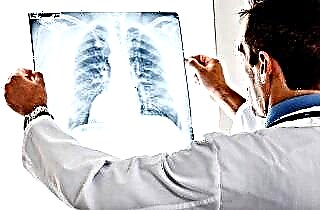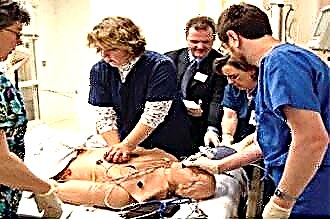Chronic cough is a very bad symptom that should never be ignored. Although this is what many do, especially since it often begins as a slight periodic coughing. And only when the inflammatory processes are activated, it begins to really cause inconvenience. But it is better not to wait for this moment, but to go to the doctor if you notice that a cough, even a weak one, does not go away for a long time.
The main symptoms
 In fact, mainstream medicine declares a chronic cough that does not go away for more than eight weeks. Note, not from the moment of the beginning or the end of treatment, but from the day when it was discovered at all. There is a significant difference here. After some diseases, the so-called "residual cough" continues for some time, which, gradually subsiding, completely disappears in 10-14 days.
In fact, mainstream medicine declares a chronic cough that does not go away for more than eight weeks. Note, not from the moment of the beginning or the end of treatment, but from the day when it was discovered at all. There is a significant difference here. After some diseases, the so-called "residual cough" continues for some time, which, gradually subsiding, completely disappears in 10-14 days.
If the cough does not go away for more than 1.5 months, this means that the diagnosis was incorrectly diagnosed and the cause that caused it was determined, or the prescribed treatment does not help, and the disease flows into a chronic form. Both are very undesirable phenomena, so measures must be taken immediately to rectify the situation.
Usually, a chronic cough is accompanied by symptoms characteristic of it:
- appears at regular intervals or in certain circumstances;
- over time, attacks become more frequent and their intensity intensifies;
- breathing is difficult, slight swelling and throat irritation is likely.
These symptoms are characteristic of any chronic cough. But there are other accompanying symptoms that may indicate the cause of its occurrence.
Chronic Cough Causes
In fact, there are quite a few causes of chronic cough. Previously, you can guess about them, focusing on the accompanying symptoms. But an accurate diagnosis can only be made by a doctor after a comprehensive examination. The main causes of chronic cough are:
- Allergic reaction. It is accompanied by severe swelling, shortness of breath, profuse mucus from the nose, redness of the eyes. With low exposure to the allergen, these signs may be subtle. This cough can last from several months to several years - it is the longest.

- Bronchial asthma. The cough is paroxysmal in nature, it is sharp, suffocating, without sputum. Its frequency and intensity depend on the characteristics of the course of the disease. During remission, the cough recedes, but at the slightest exacerbation it starts again.
- Reflux disease. The cough is caused by irritation of the esophagus and larynx due to constant or intermittent dumping of gastric juice into the esophagus. Characteristic symptoms are bad breath, persistent sour taste on the tongue, heartburn. The problem is exacerbated at night, when the person takes a horizontal position, and because the reflux valve does not close, the contents of the stomach seep into the esophagus.
- Chronical bronchitis. Usually accompanied by a large accumulation of mucus, which the body tries to get rid of with the help of a cough. One of the characteristic signs of acute chronic bronchitis is severe shortness of breath that occurs after bouts of coughing or with even minimal aerobic exertion, in which breathing becomes more frequent.
- Sluggish pneumonia. This insidious disease can proceed without a strong rise in temperature, so it remains unnoticed for a long time. Mild pain or a feeling of discomfort with a deep breath, heavy breathing, subfebrile body temperature can indicate it. Wheezing is usually only heard when listening with a stethoscope.
 Infectious diseases. In this case, due to the fact that the treatment was ineffective or not completed, not all of the infection that caused the disease is completely removed from the body. The remaining foci provoke a resumption of inflammation, due to which a cough appears. Over time, bronchitis and pneumonia may develop.
Infectious diseases. In this case, due to the fact that the treatment was ineffective or not completed, not all of the infection that caused the disease is completely removed from the body. The remaining foci provoke a resumption of inflammation, due to which a cough appears. Over time, bronchitis and pneumonia may develop.- Antihypertensive drugs. A whole group of antihypertensive drugs, which are taken regularly for hypertension, can also cause a cough. This is the IATF group, which includes such popular drugs as Captopril, Lisinopril, Enalapril, etc. Such a cough can be calculated by the frequency - after 1-2 hours after taking the drug, it intensifies, then gradually subsides.
- Smoking cigarettes. It causes a number of inflammatory processes in the bronchi and lungs, the result of which is the so-called "smoker's cough". It worsens in the morning, as a large amount of mucus, saturated with resins and toxic substances, accumulates during the night.
A persistent cough can also be a symptom of pulmonary tuberculosis or neoplasms present in them. There is also a heart cough, which, in fact, is a reflex reaction of the body to a lack of oxygen caused by cardiovascular failure.
These types of coughs are no longer chronic, since you can get rid of them only by curing the underlying disease.
Diagnostic methods
The possibility of a complete cure of chronic cough by 90% depends on how accurately its cause is identified. Therefore, it is better to trust specialists in this regard. A preliminary diagnosis is usually made by a general practitioner, after several stages of examination:
 External examination - allows you to see the redness of the throat, the accumulation of mucus on the back wall of the larynx. When listening to the lungs, the doctor pays attention to the presence or absence of wheezing and gurgling sounds. By sound, the doctor determines the nature of the cough and its features.
External examination - allows you to see the redness of the throat, the accumulation of mucus on the back wall of the larynx. When listening to the lungs, the doctor pays attention to the presence or absence of wheezing and gurgling sounds. By sound, the doctor determines the nature of the cough and its features.- X-rays of light. It is prescribed if there is a suspicion of bronchitis or pneumonia. Sometimes it helps to accidentally detect tuberculosis or neoplasms.
- MRI - is prescribed in cases where the cough continues for a long time after an infectious disease. It helps to identify single foci of infection that provoke it.
- Laboratory tests - a general blood test to detect inflammatory processes, sputum analysis for microflora shows the causative agents of the disease.
- Bronchoscopy - is prescribed for a detailed study of the state of the bronchi and the detection of pathology in them. A thin tube is inserted through the mouth into the bronchi, at the end of which a miniature camera is fixed, which displays the image on the monitor screen.
- Spirometry - allows you to determine the functionality of the lungs and their general condition. The patient exhales through the tube connected to the devices, and the device determines the necessary parameters.
Comprehensive diagnostics makes it possible to exclude the possibility of repeated misdiagnosis and helps to determine the methods and means of treatment.
Drug treatment
 The most reliable way to cure a chronic cough is to take modern and effective medications. Moreover, it often turns into a chronic form precisely after home self-medication, which did not lead to the desired result. Therefore, it is better to stop any experiments and start a serious course of therapy.
The most reliable way to cure a chronic cough is to take modern and effective medications. Moreover, it often turns into a chronic form precisely after home self-medication, which did not lead to the desired result. Therefore, it is better to stop any experiments and start a serious course of therapy.
Since the treatment of chronic cough directly depends on the causes that caused it, the following groups of drugs are usually prescribed:
- Antihistamines - relieve swelling, reduce mucus production, help stop severe coughing attacks. They are used to treat not only allergic coughs, but also for other types of chronic cough.
- Antibiotics are always present in the treatment of chronic cough caused by pathogenic microorganisms. They help to completely eliminate foci of infection and relieve inflammation. The dosage and type of antibiotics are selected based on the test results.
- Acidity blockers - used to fight reflux cough. They cannot completely eliminate its cause, since fluid reflux from the stomach will continue until the reflux valve pathology is completely eliminated. But the irritation of the esophagus will be less, as the acidity index will decrease.
- Expectorants - help clear accumulated mucus from the lungs and bronchi. They cut it open and make it easier to cough up. Prescribed for chronic bronchitis, smoker's cough, sometimes with pneumonia.
 Antitussives. They oppress the cough center, suppressing a reflex cough. They are prescribed with caution, only in cases where the cause of a severe cough is not fully understood, or the doctor is sure that there is not a large accumulation of mucus that can stagnate in the lungs, creating additional foci of infection.
Antitussives. They oppress the cough center, suppressing a reflex cough. They are prescribed with caution, only in cases where the cause of a severe cough is not fully understood, or the doctor is sure that there is not a large accumulation of mucus that can stagnate in the lungs, creating additional foci of infection.
Combinations of drugs, as well as their names and dosages, should only be prescribed by the attending physician. Moreover, some drugs are able to interact with each other, enhancing or weakening the action of each other. Only an experienced specialist can take into account all their features and contraindications.
Physiotherapy procedures
A great way to speed up the treatment of a lingering chronic cough in adults is through physical therapy treatments that you can do at home or at your health center. Of course, electrical procedures have a deeper effect, since they can directly affect the respiratory system. But home methods of warming up and treatment also give good results.
The best ways to treat a severe chronic cough are:
- Inhalation with decoctions of medicinal herbs, soda solution, essential oils, or the use of special ready-made mixtures. In case of bronchopulmonary diseases, an excellent result is given by inhalation with a nebulizer - an apparatus that creates finely dispersed solutions that enhance the effect of drugs due to their greater depth of penetration.
 Ultrasound - provides deep warming due to exposure to high-frequency sound waves of a certain length. Contraindicated in heart failure, metal implants in the chest area and an established pacemaker.
Ultrasound - provides deep warming due to exposure to high-frequency sound waves of a certain length. Contraindicated in heart failure, metal implants in the chest area and an established pacemaker.- Paraffin therapy - can be performed both at home and in hospitals. Deeply warms up and expands the bronchi, facilitates coughing, relieves pain and spasms. An absolutely safe procedure with minimal contraindications, it can also be used for children.
- Mustard plasters are an excellent home remedy that increases blood circulation and warms deeply, causing local irritation to the skin. They are used for bronchitis, pneumonia, pleurisy, pharyngitis. Care must be taken not to cause a chemical burn to the skin.
- Blue lamp - has excellent anti-pain and anti-inflammatory effects. Gentle but deep heating helps to quickly eliminate the foci of inflammation.
Any physiotherapy procedures are effective only when they are performed in courses of 5 to 10 sessions.
A common contraindication for them is an increased body temperature (above 37.2-37.5), the rest is better to clarify additionally. Immediately after warming up, you cannot go outside, you need to rest for 20 to 40 minutes. Or do the procedures before bedtime.

 Infectious diseases. In this case, due to the fact that the treatment was ineffective or not completed, not all of the infection that caused the disease is completely removed from the body. The remaining foci provoke a resumption of inflammation, due to which a cough appears. Over time, bronchitis and pneumonia may develop.
Infectious diseases. In this case, due to the fact that the treatment was ineffective or not completed, not all of the infection that caused the disease is completely removed from the body. The remaining foci provoke a resumption of inflammation, due to which a cough appears. Over time, bronchitis and pneumonia may develop. External examination - allows you to see the redness of the throat, the accumulation of mucus on the back wall of the larynx. When listening to the lungs, the doctor pays attention to the presence or absence of wheezing and gurgling sounds. By sound, the doctor determines the nature of the cough and its features.
External examination - allows you to see the redness of the throat, the accumulation of mucus on the back wall of the larynx. When listening to the lungs, the doctor pays attention to the presence or absence of wheezing and gurgling sounds. By sound, the doctor determines the nature of the cough and its features. Antitussives. They oppress the cough center, suppressing a reflex cough. They are prescribed with caution, only in cases where the cause of a severe cough is not fully understood, or the doctor is sure that there is not a large accumulation of mucus that can stagnate in the lungs, creating additional foci of infection.
Antitussives. They oppress the cough center, suppressing a reflex cough. They are prescribed with caution, only in cases where the cause of a severe cough is not fully understood, or the doctor is sure that there is not a large accumulation of mucus that can stagnate in the lungs, creating additional foci of infection. Ultrasound - provides deep warming due to exposure to high-frequency sound waves of a certain length. Contraindicated in heart failure, metal implants in the chest area and an established pacemaker.
Ultrasound - provides deep warming due to exposure to high-frequency sound waves of a certain length. Contraindicated in heart failure, metal implants in the chest area and an established pacemaker.

